Heartwarming Portraits of 50 Dads Explore the Meaning of Fatherhood [Interview]
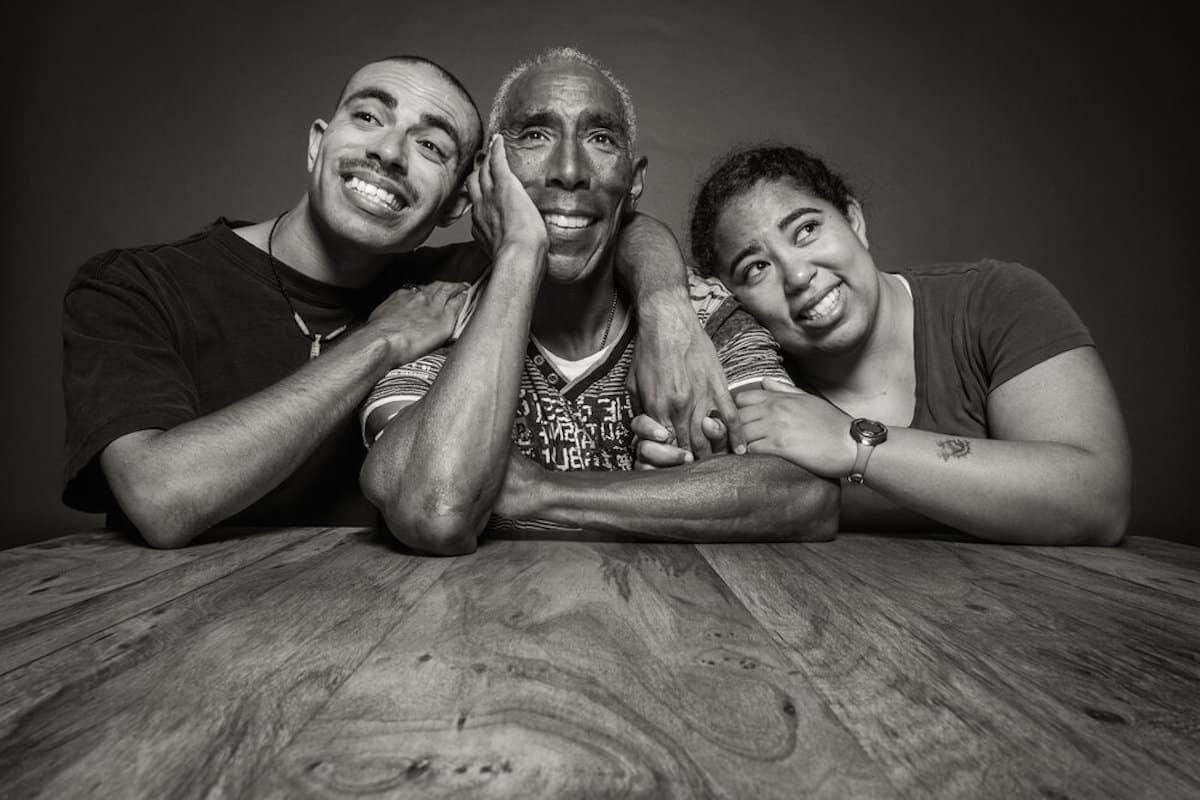
Fatherhood looks different for everyone, but it can be distilled to one word: connection. Documentary portrait photographer Antoine Didienne explores how modern-day fatherhood forges these bonds in his ambitious series titled Portraits of My Father. Didienne photographed 50 dads, along with their children, in endearing candid-style studio portraits. Though a moment frozen in time, the black-and-white images offer a fascinating insight into each relationship.
In photographing so many families, Didienne examines masculinity, love, and parenting as a way to challenge the traditional assumptions that come with fatherhood. “I sought to photograph fathers of all kinds,” he tells My Modern Met. “Ones that have adopted children or that were adopted themselves; recomposed families; fathers and kids with special needs; dads that have used surrogates in order to have children; fathers and kids with mixed backgrounds of all kinds, of all classes and orientations…” Portraits of My Father impressed upon him that DNA “doesn’t mean much when it comes to being a father.”
We spoke with Didienne about his series, including one of his most memorable portraits out of the 50 he snapped. Scroll down to read My Modern Met’s exclusive interview.
Photographer Antoine Didienne explores modern-day fatherhood in his emotional series titled Portraits of My Father.
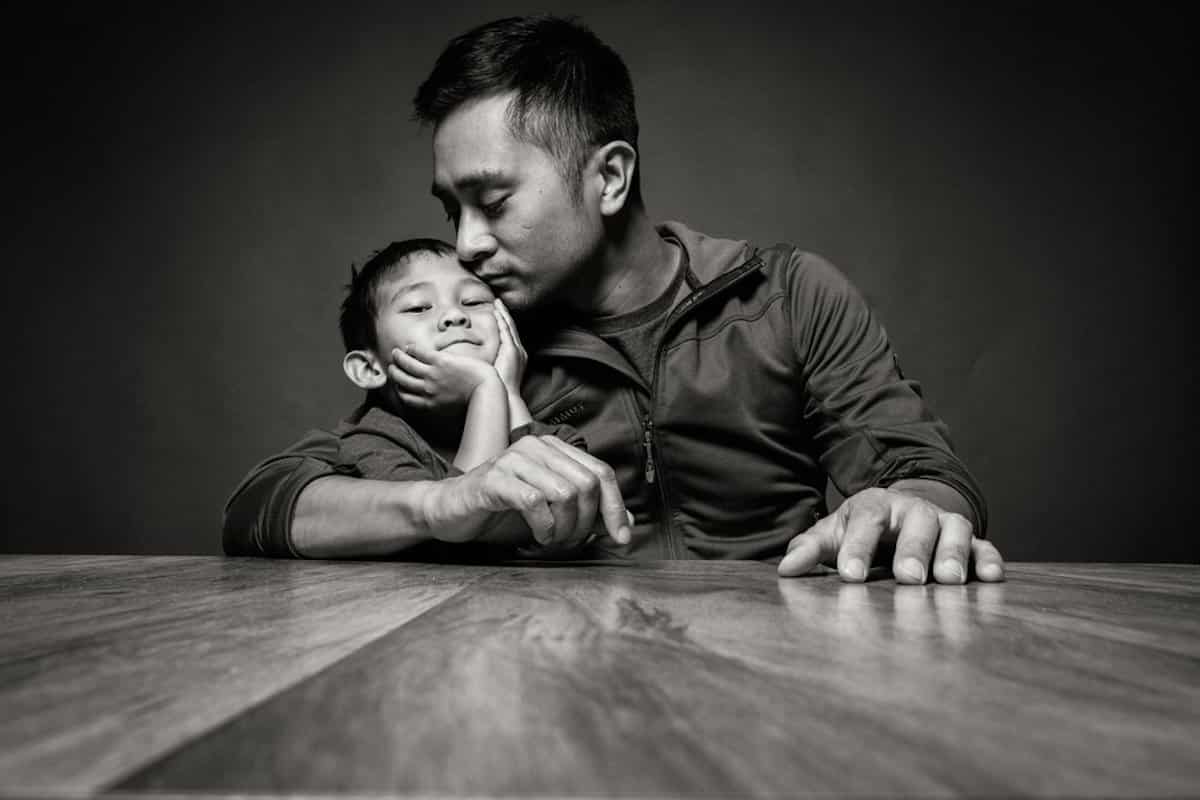 What inspired you to begin Portraits Of My Father?
What inspired you to begin Portraits Of My Father?
I was at a time in my photography career when I was looking for more meaning in my photography and I was buying a lot of photography coffee table books for inspiration. I had only recently started shooting portraits and I am a huge fan of Platon, Irving Penn, Arnold Newman, and particularly of Belgian photographer Stephan Vanfleteren. I wanted to understand their work and process better so I took time to conceptualize a long-form project. I started and abandoned a couple before deciding on fatherhood. I wanted something intimate and important and I went with what I knew intimately: being a father. I knew I wanted to eventually exhibit the project and make a book, so I reversed engineered everything from there.
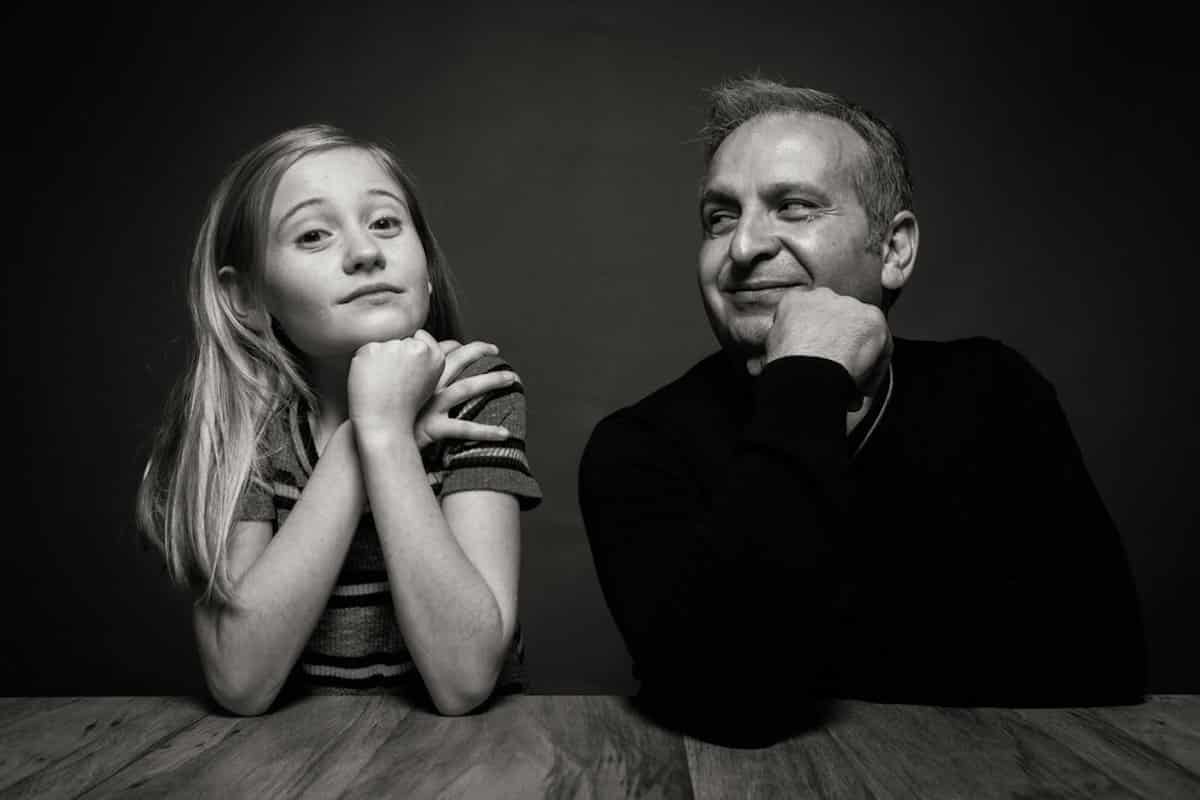
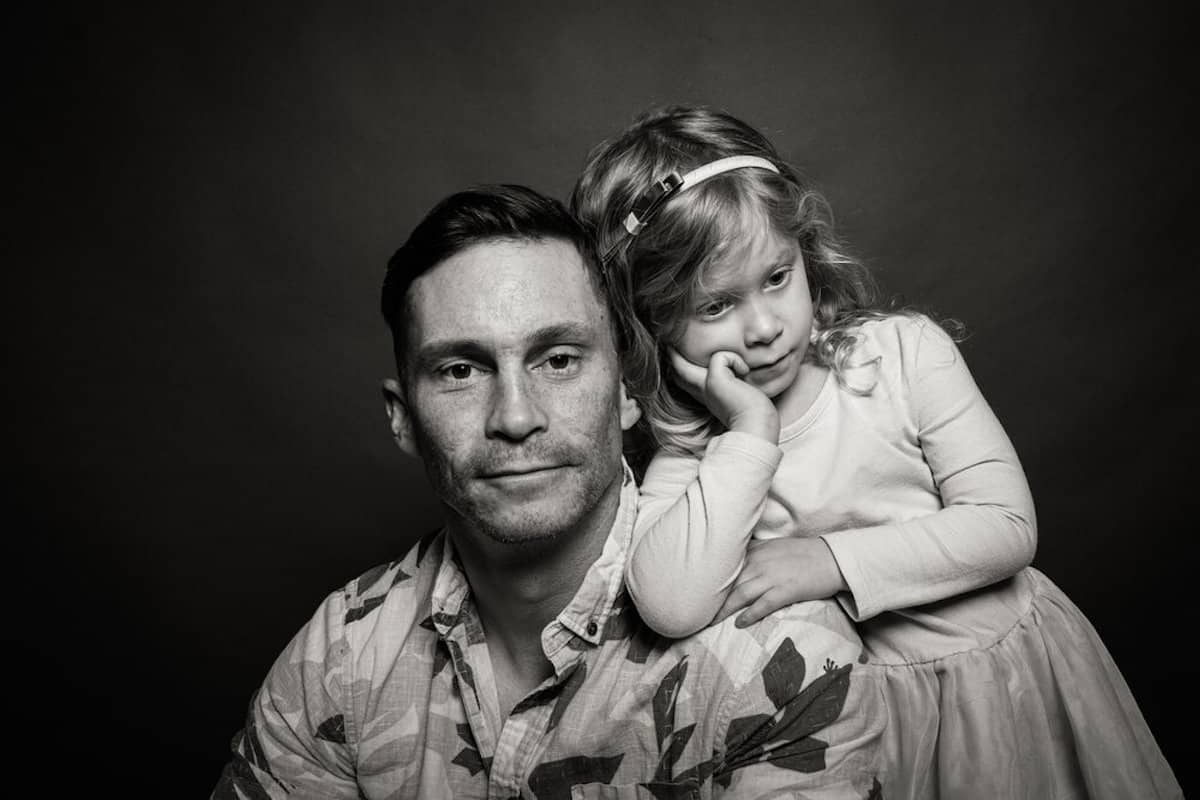 Your images, while portraits, have a documentary quality to them; they feel candid and like reflections of the people you’re photographing. How did you achieve this in the studio?
Your images, while portraits, have a documentary quality to them; they feel candid and like reflections of the people you’re photographing. How did you achieve this in the studio?
Documentary photography and photojournalism take up a lot of space in my photography brain and that’s how I approach any type of work I do anyways. Whether it’s a “day in the life” session with a family, a wedding, or a portrait in my studio I want to say something about the people I photograph. It’s important to me when it comes to creating good art and a good story. I wanted the images to feel full of life and movement even if I posed my subjects. I decided to have the sessions feel more like conversations. I would talk to the dads and kids beforehand.
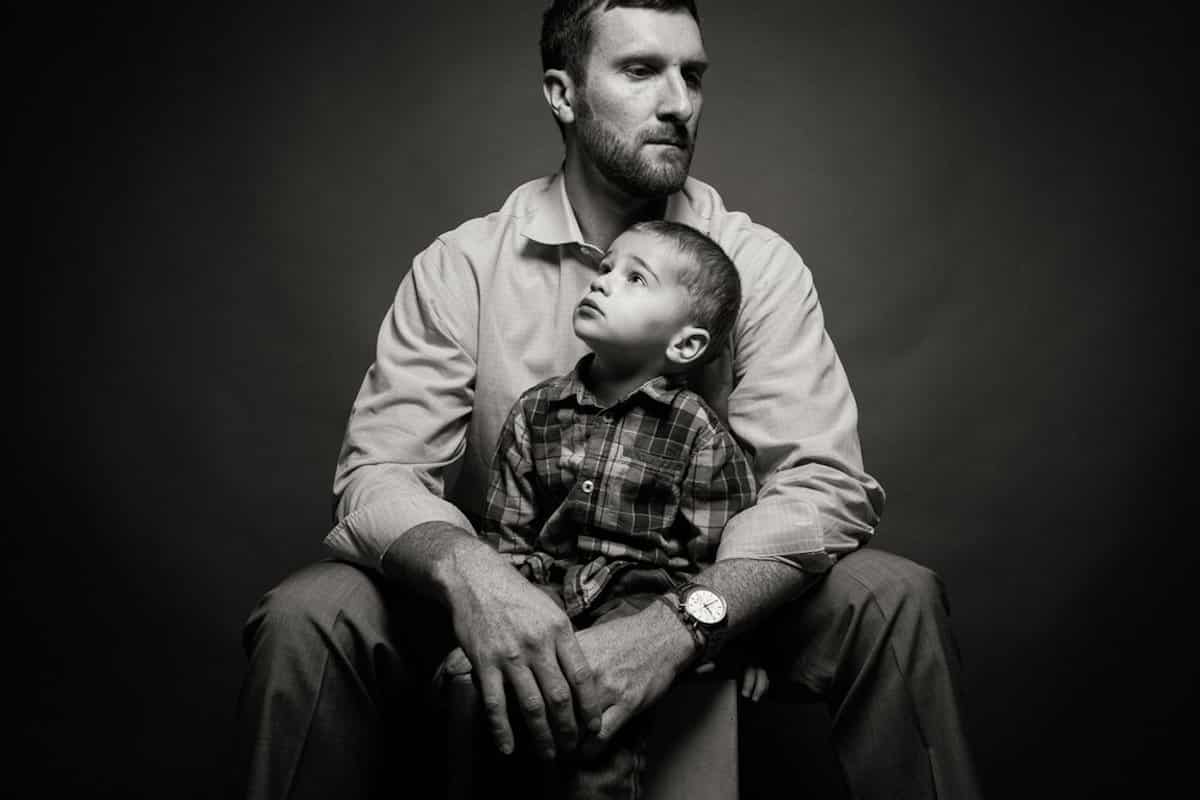
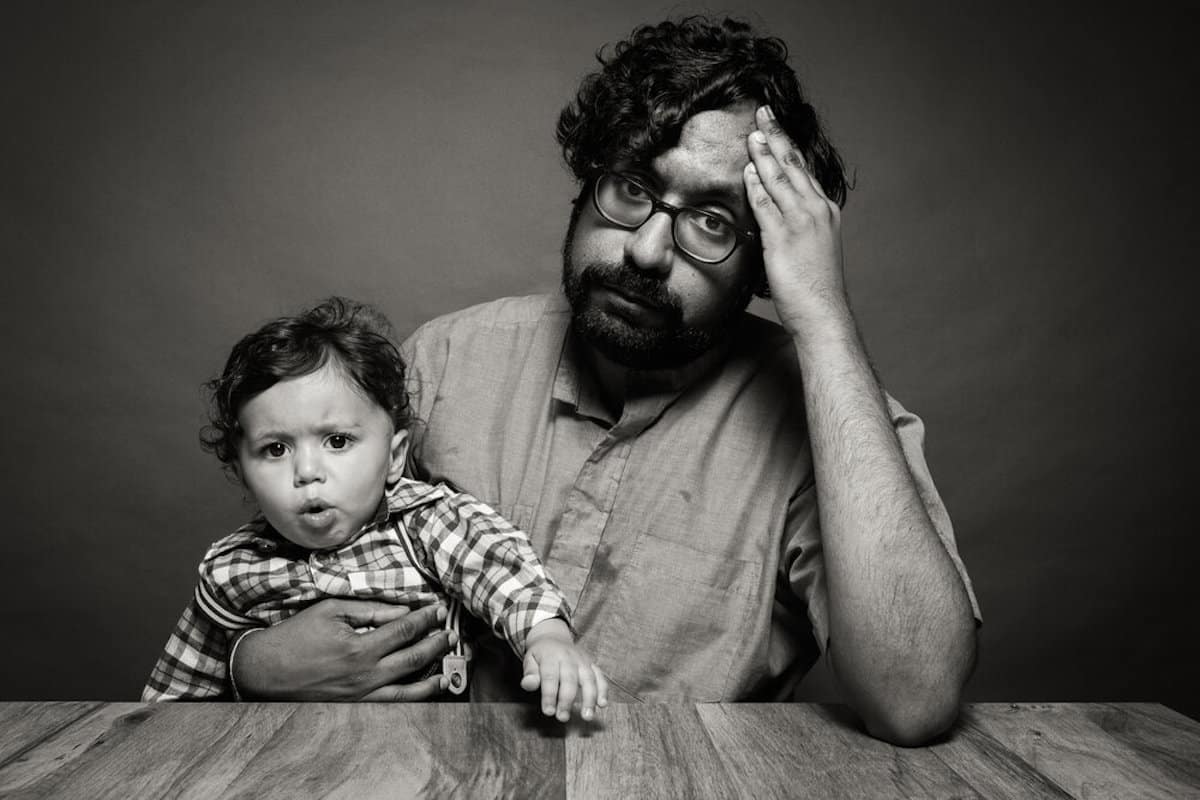 What is your experience with fatherhood?
What is your experience with fatherhood?
I have two kids but before that, I was my father’s son. I’ve had many years to ponder and analyze my somewhat distant relationship with my dad and to figure out where we went wrong in our relationship; I wanted to do things differently… I expect my kids to do the same.
I have two gorgeous daughters ages 12 and 6. I was—and still am—a sort of dad-preneur, splitting my time between parenting and running a business. My wife has a more strict schedule that takes her to the office and I was running a business from my house so it made sense for us to switch traditional gender roles so I became the parent-bus-entrepreneur that shows up to school events.
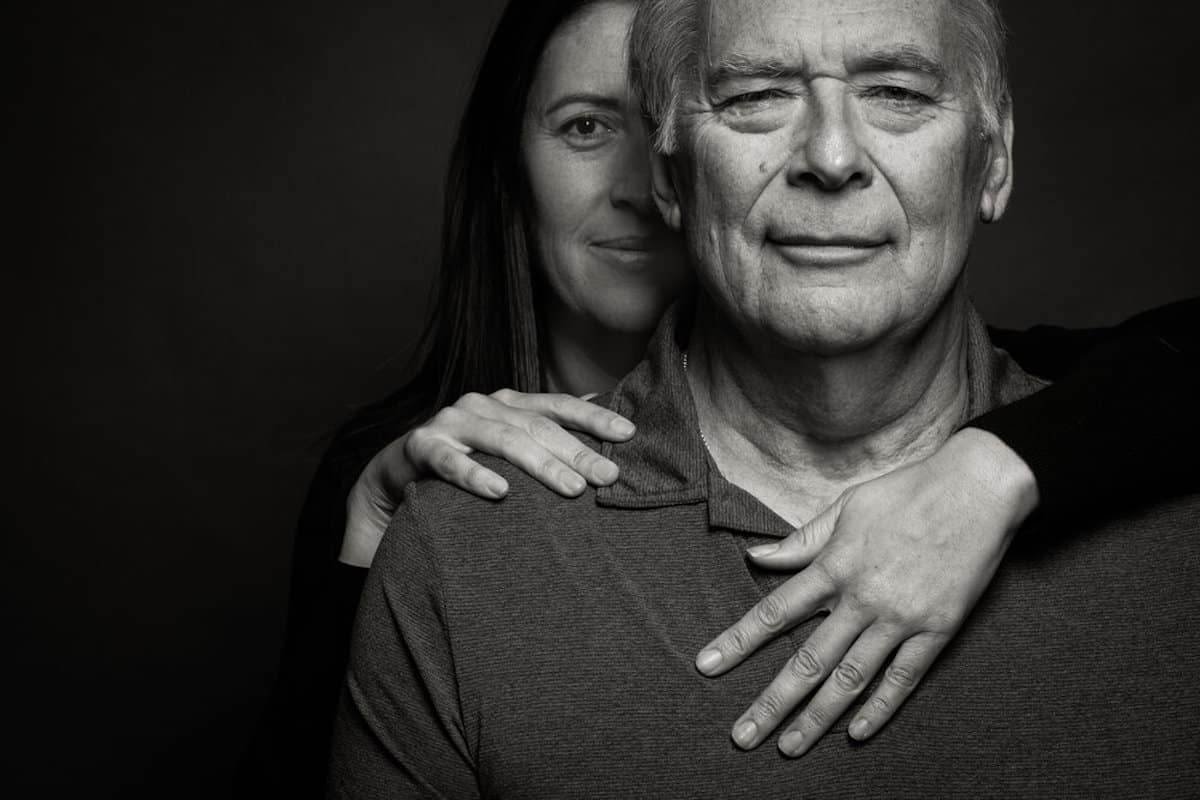
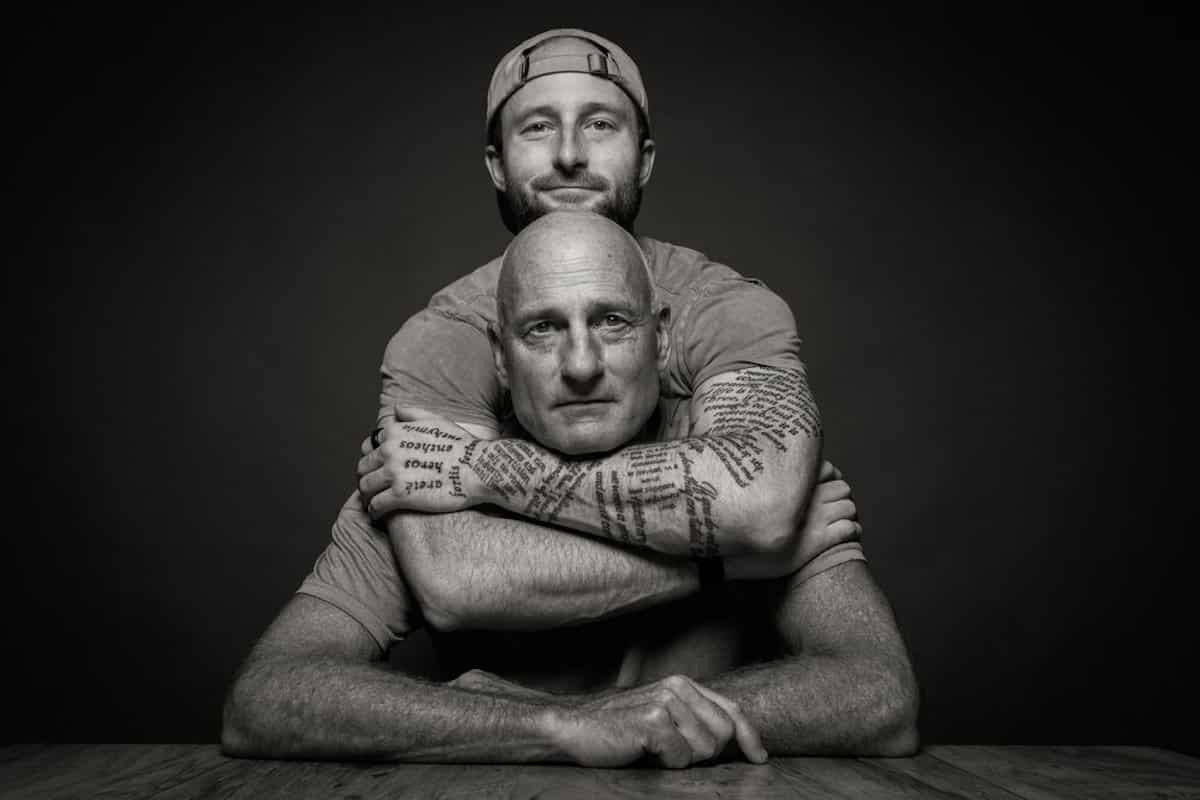 Your Portraits Of My Father project was ambitious—you photographed 50 dads! Can you tell us about one memorable session?
Your Portraits Of My Father project was ambitious—you photographed 50 dads! Can you tell us about one memorable session?
I chose 50 because it was an ambitious number and the most challenging thing was the perseverance. It took me 2.5 years to complete it. My most memorable session was the last one because it took me 2.5 years to find a trans dad who would agree to be photographed. I had had many leads, phone conversations, and canceled sessions with trans dads that would want to be included but whose kids were not comfortable with it. I was done photographing the project but did not want to close it until I had found a trans dad. For me, it was essential to find someone in the community to be able to paint a complete picture… and in May, I met Arin and his daughter Alexa. These 2 were a delight to work with and gave me awesome photos. I really was able to end the project with a bang.
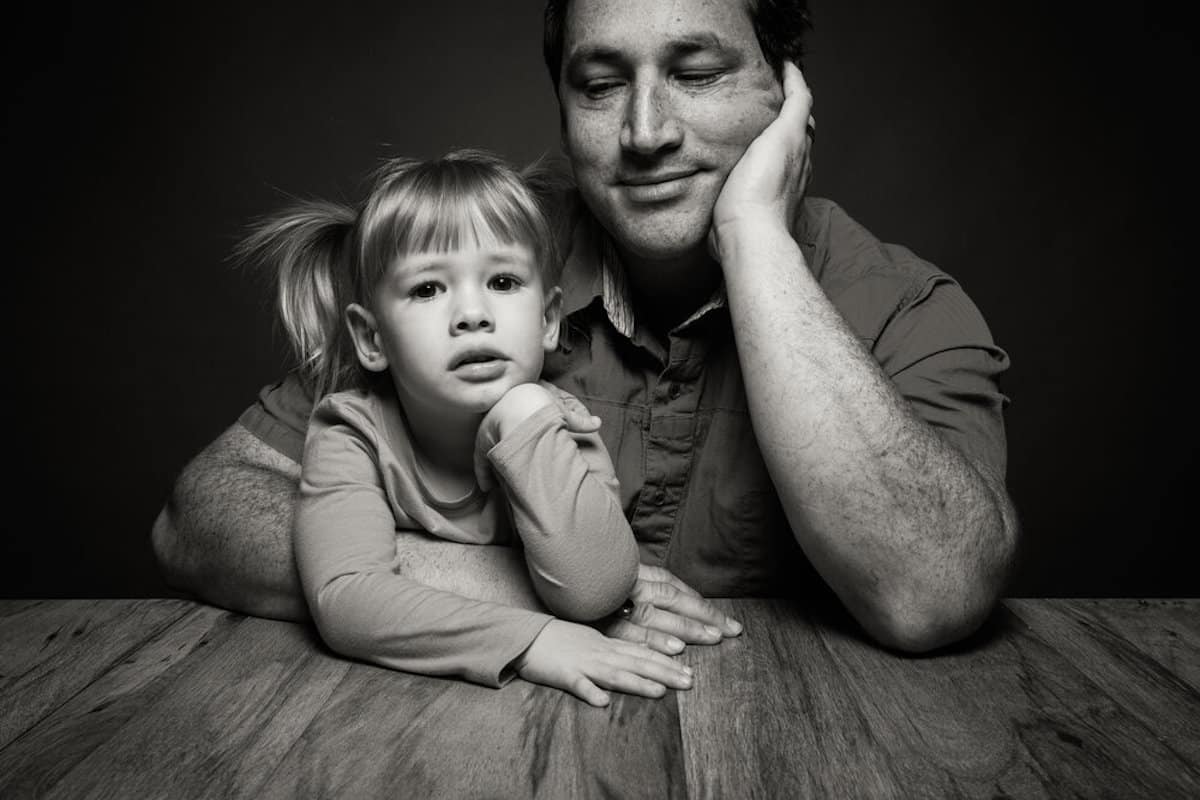
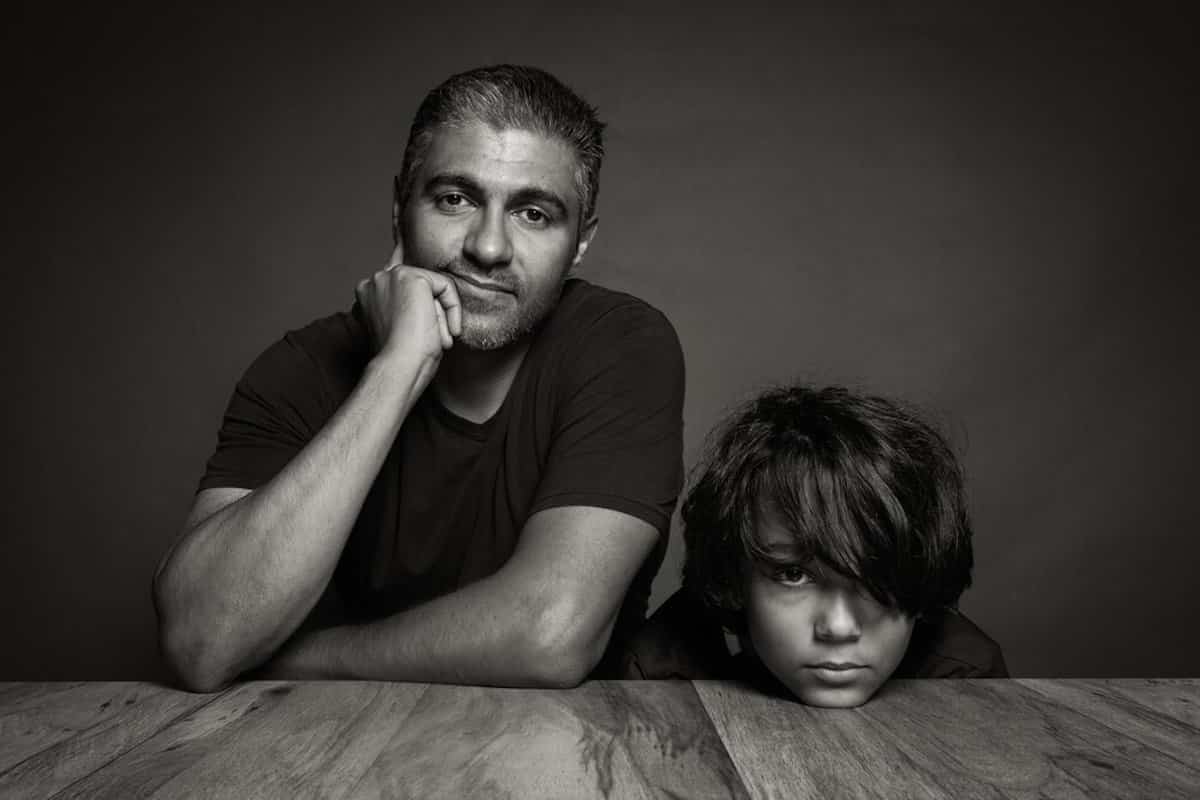 Being a father yourself, you have very personal knowledge of fatherhood. What did this project teach you?
Being a father yourself, you have very personal knowledge of fatherhood. What did this project teach you?
I came to seriously question the concept of fatherhood altogether. Photographing 50 different types of fathers will make you realize that fatherhood has nothing to do with DNA. I’ve photographed single dads; dads with special needs; dads from many different cultures, and of different orientations and we all view our role differently… but we are parents and it has little to do with masculinity and more to do with expressing ourselves.
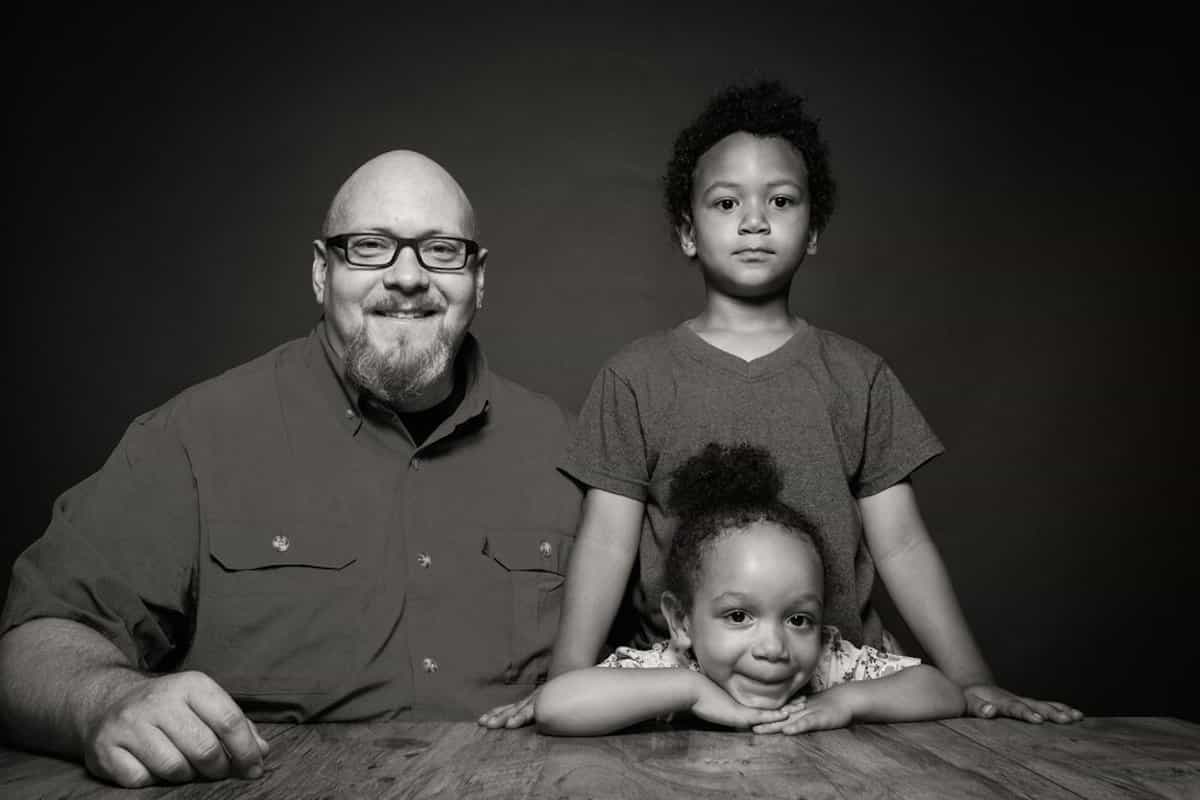
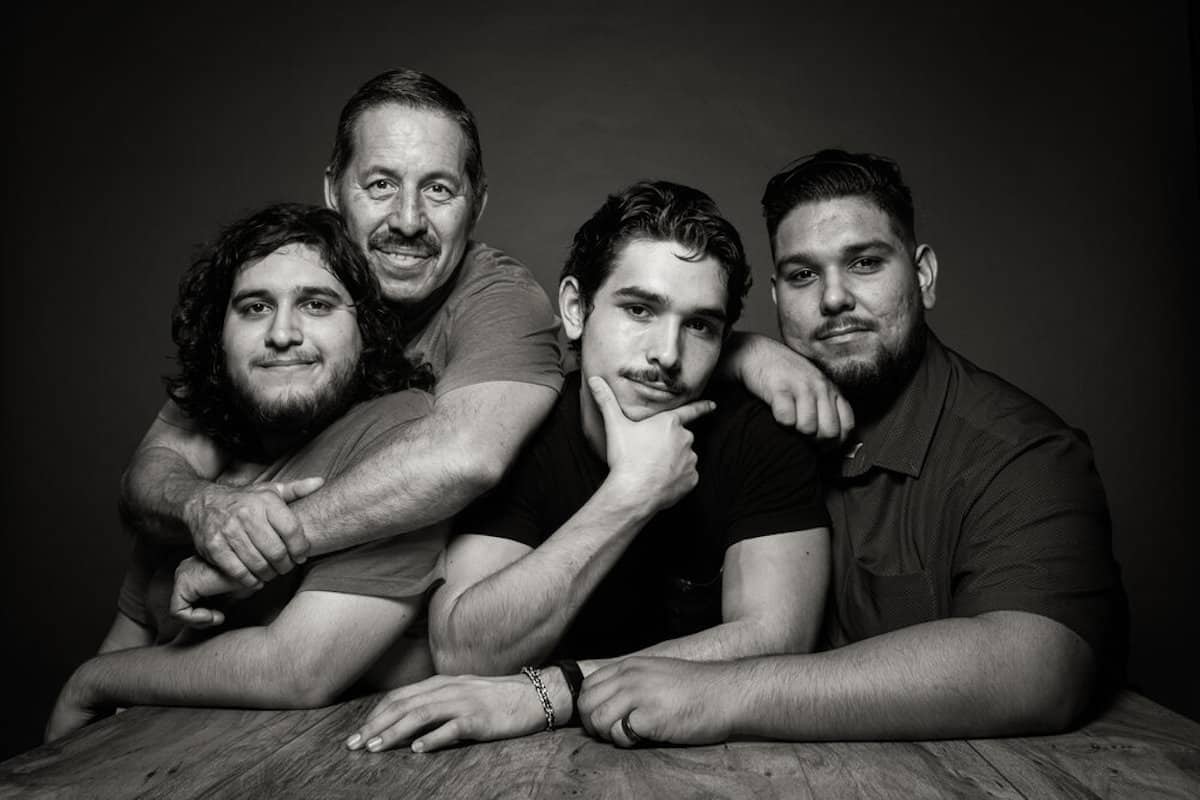 What do you hope people take away from your series?
What do you hope people take away from your series?
I just wanted to show my love for fathers. I wanted to show something to aspire to but that is also a reflection of the times. The concept of fatherhood is rapidly changing and that’s a good thing. I want other fathers to be inspired to be better dads, more present, and more engaged.
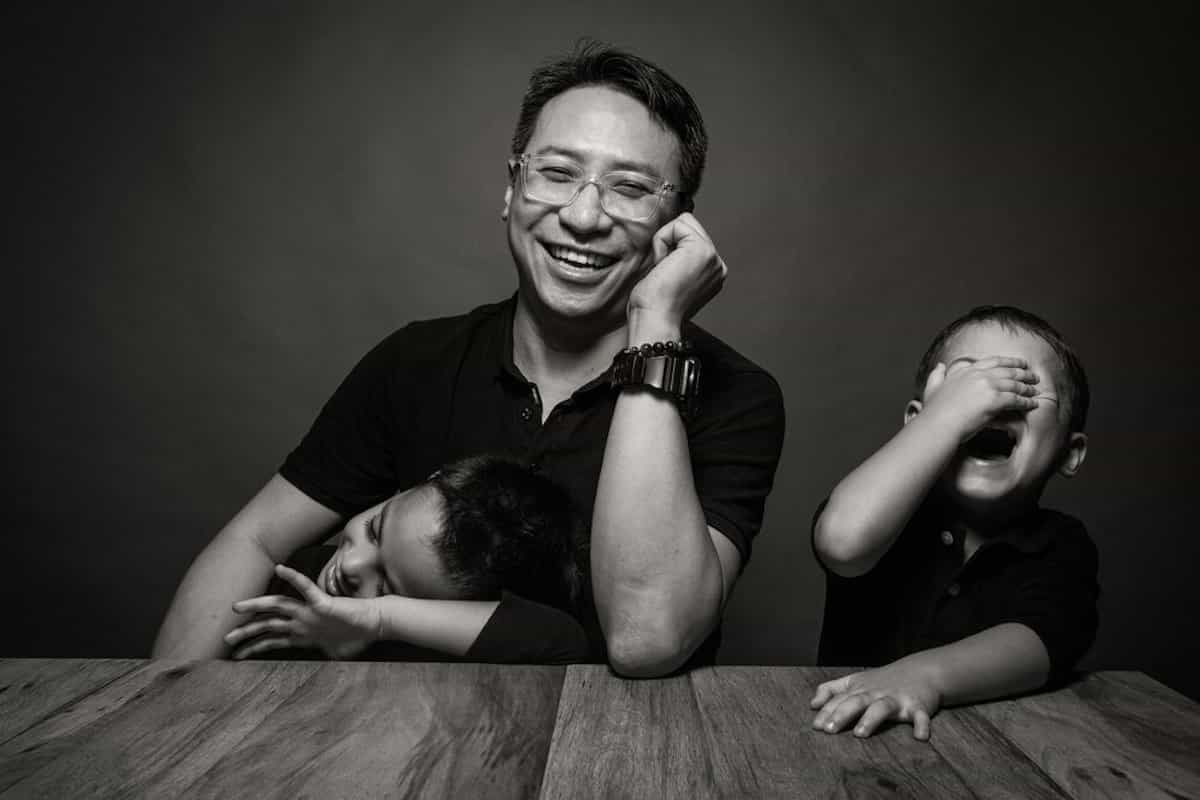
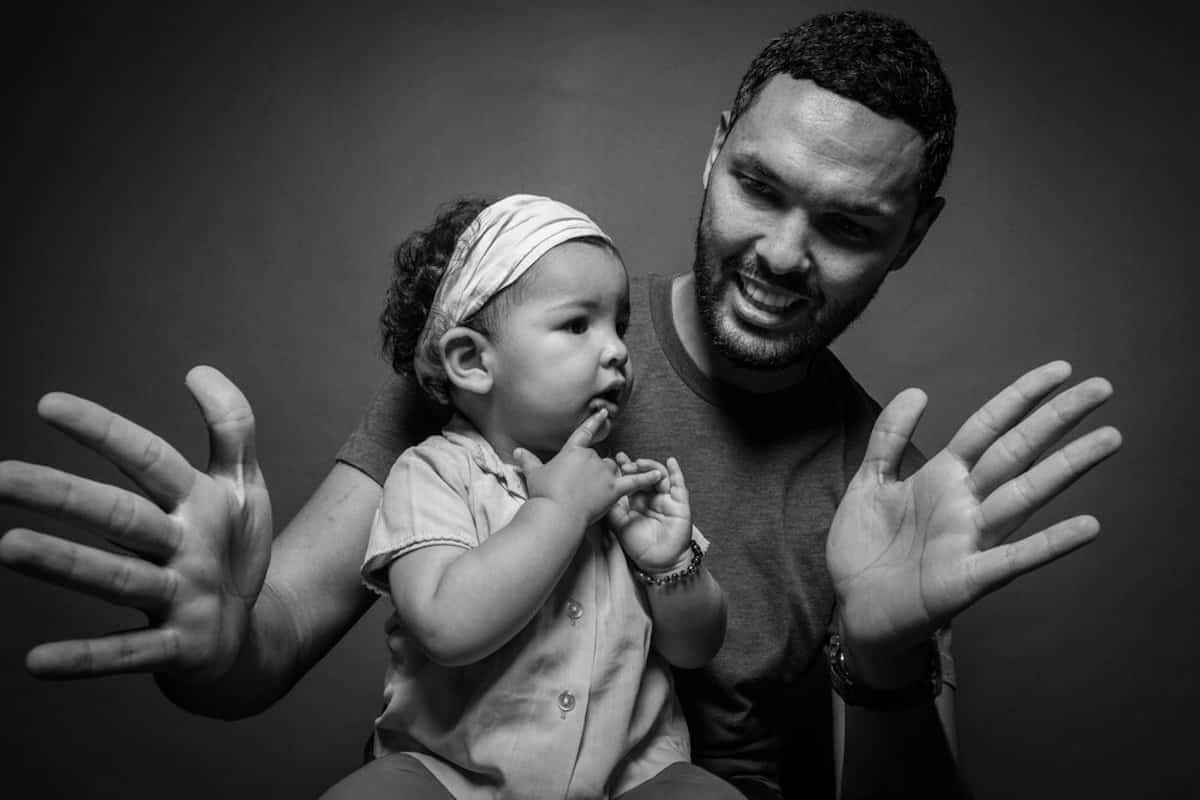 What’s on the horizon for you? Anything exciting you can tell us about?
What’s on the horizon for you? Anything exciting you can tell us about?
I have a couple of ideas… I want to do a shorter concept project honoring the career of Ruth Bader Ginsburg and I also have an idea to work more in-depth with the trans community.
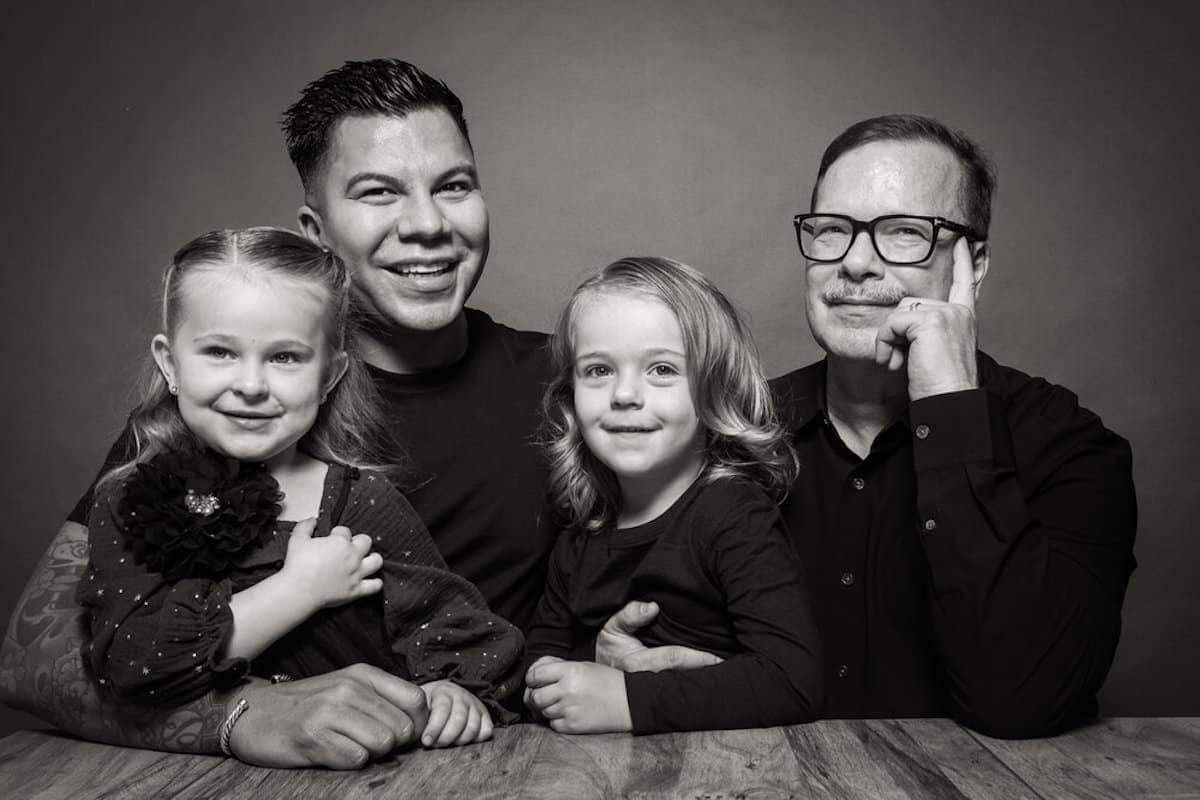

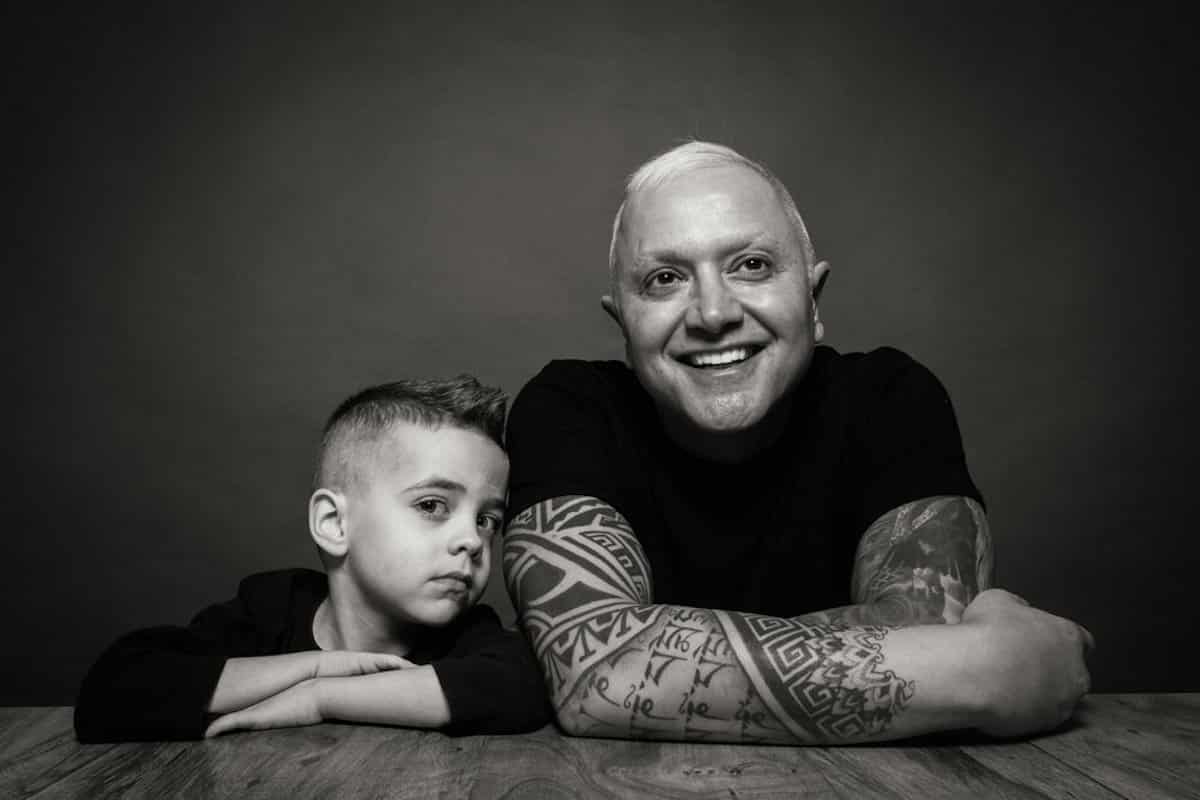
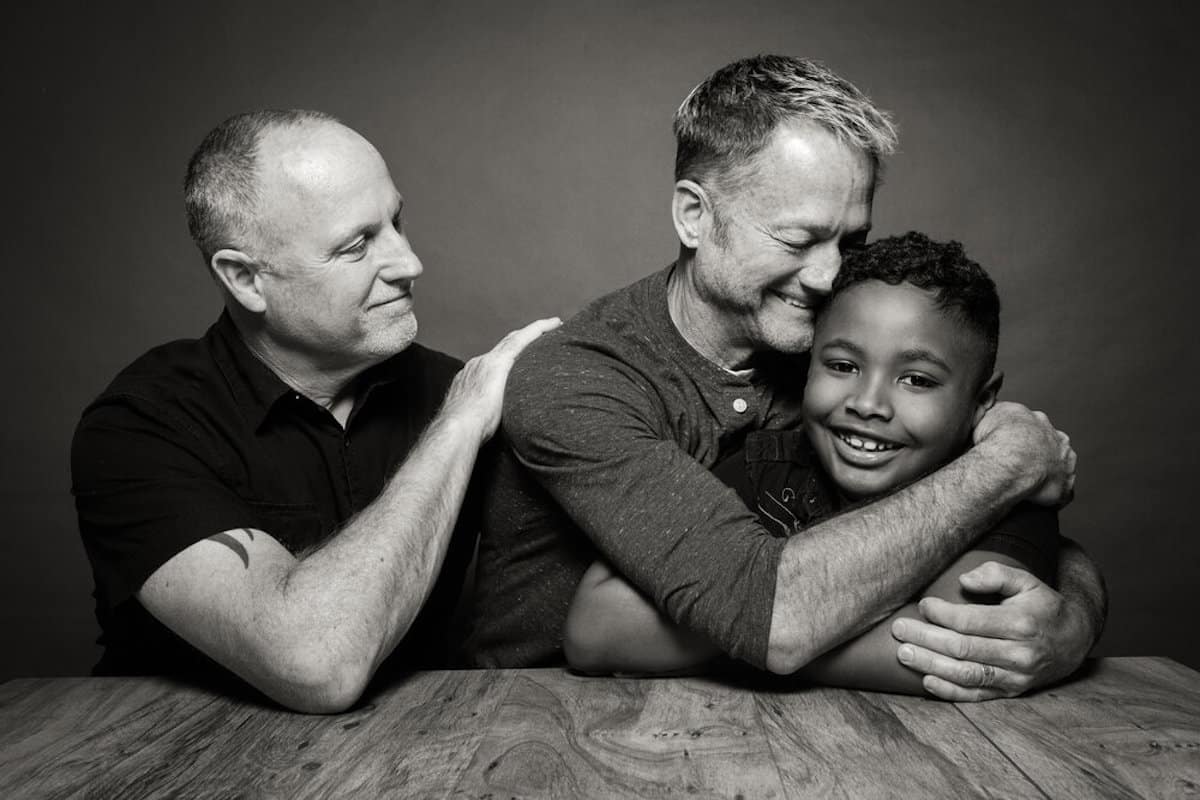
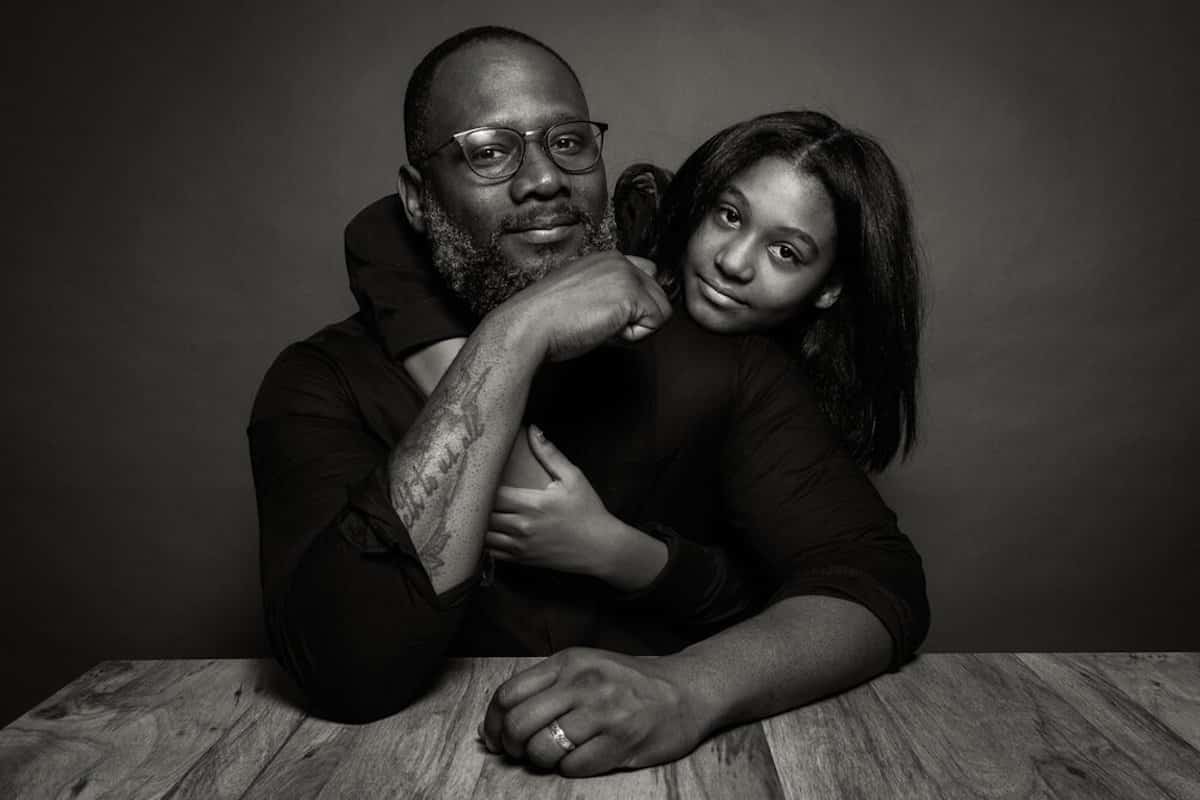
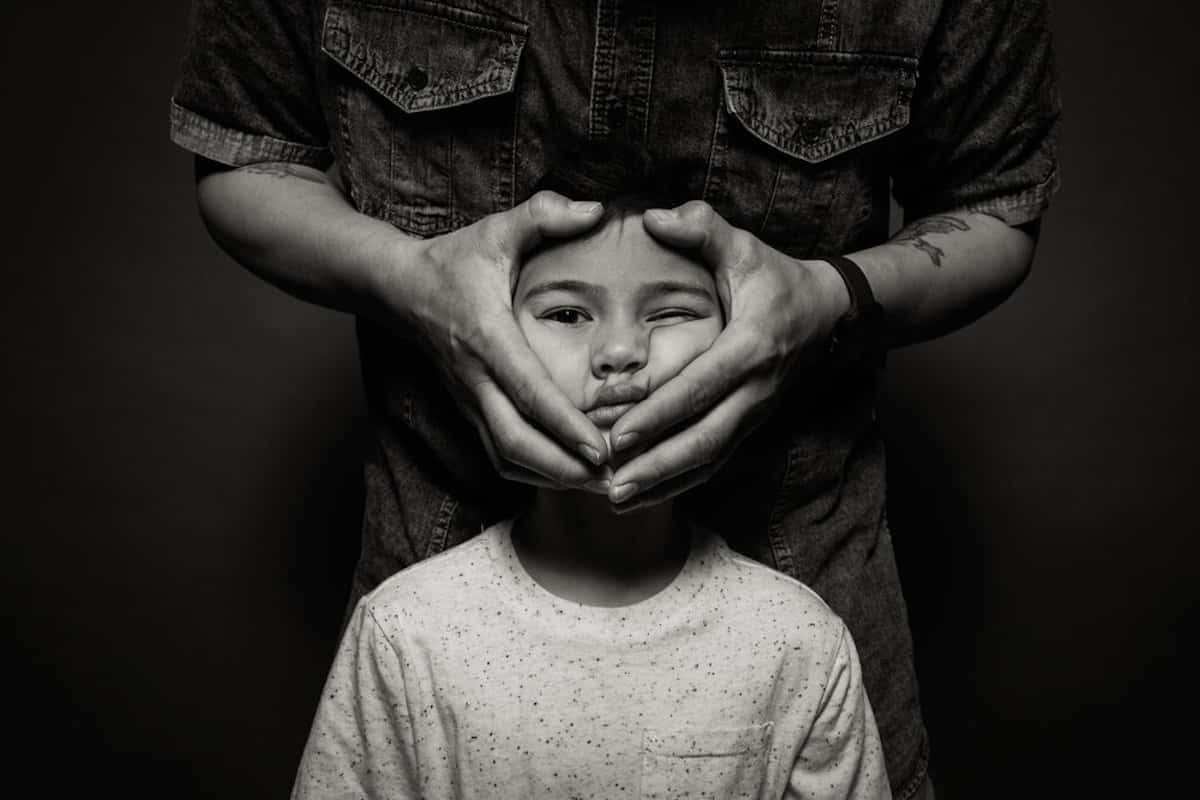
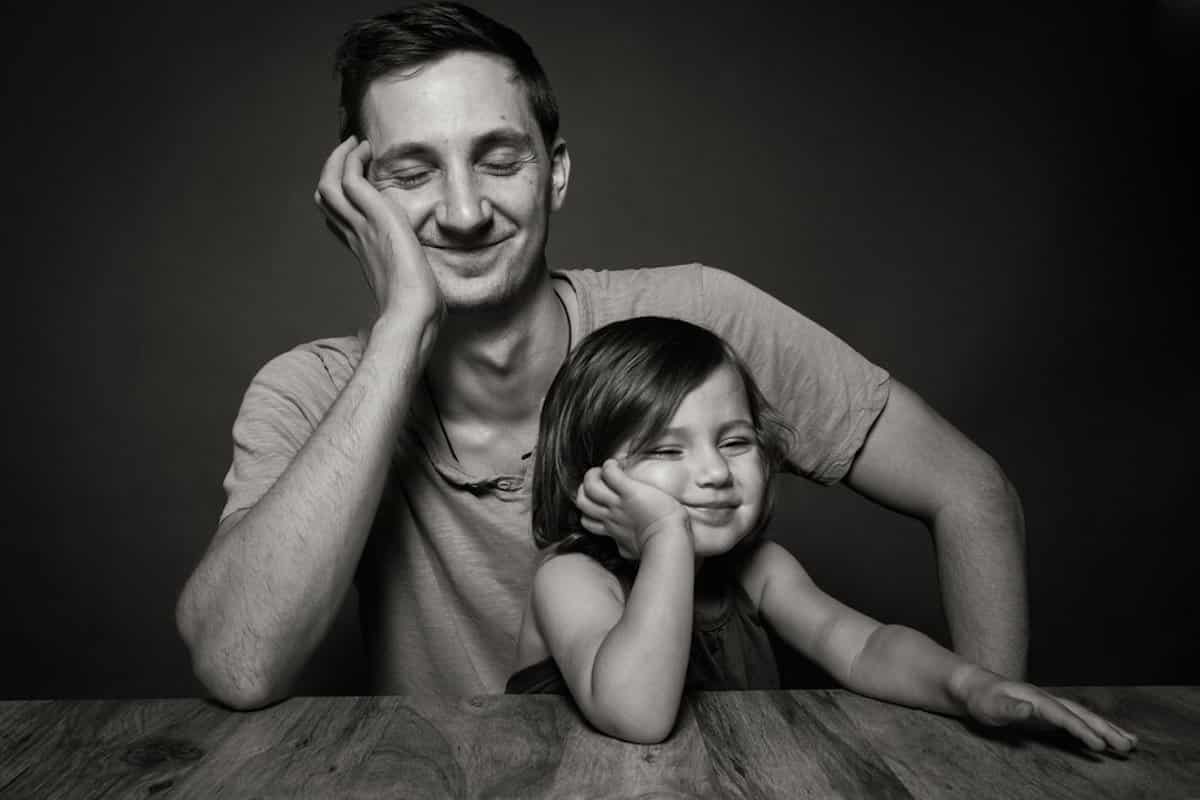
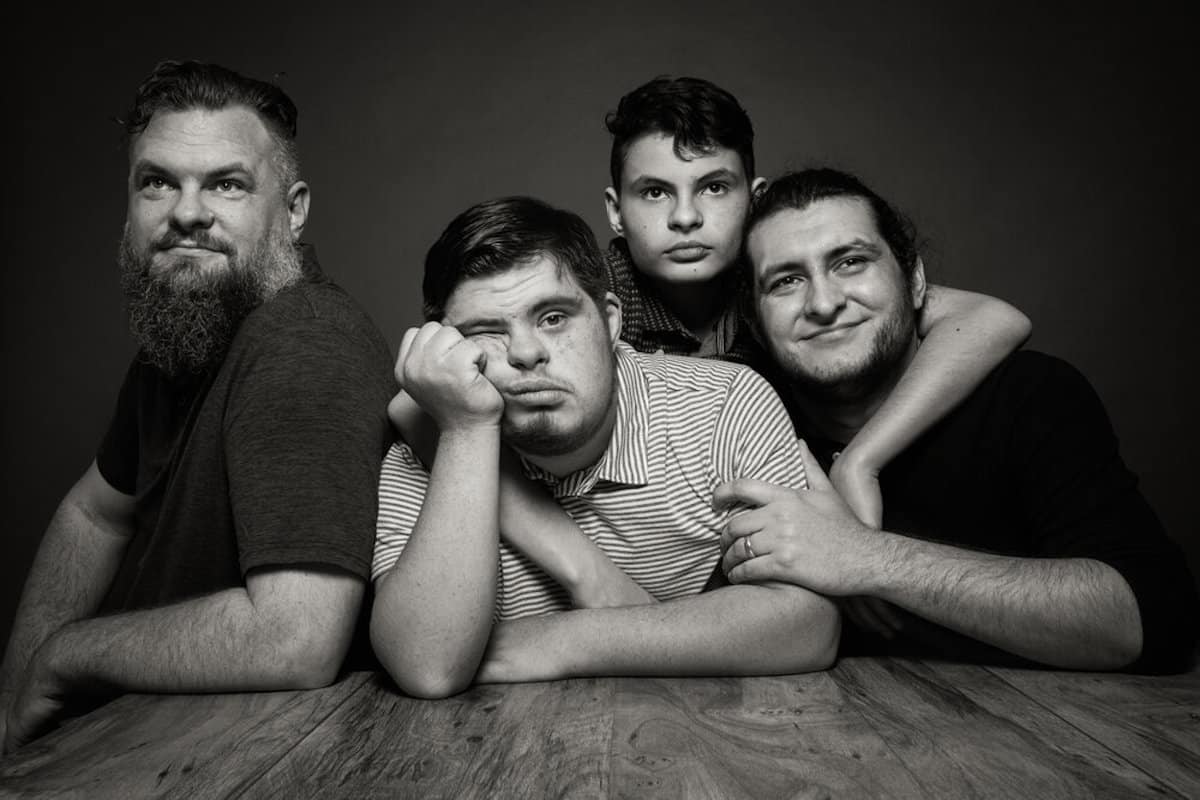
Antoine Didienne: Website | Instagram
My Modern Met granted permission to feature photos by Antoine Didienne.
Related Articles:
A Beautifully Honest Photo Series on Fatherhood
Heartwarming Portraits Show Different Types of Dads Spending Time With Their Kids
10 Creative Dads Share How Their Kids Inspire Them
READ: Heartwarming Portraits of 50 Dads Explore the Meaning of Fatherhood [Interview]
0 Commentaires